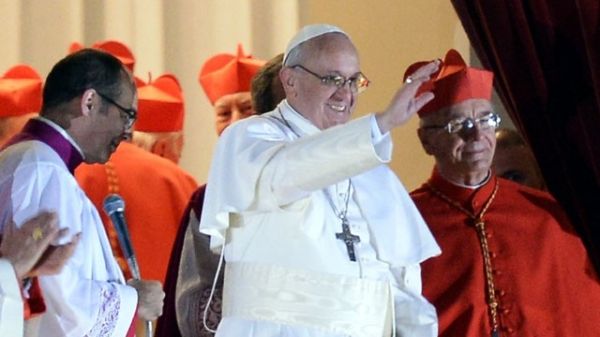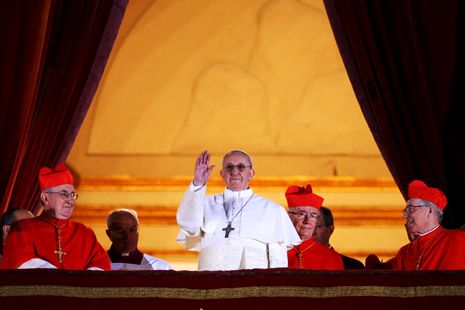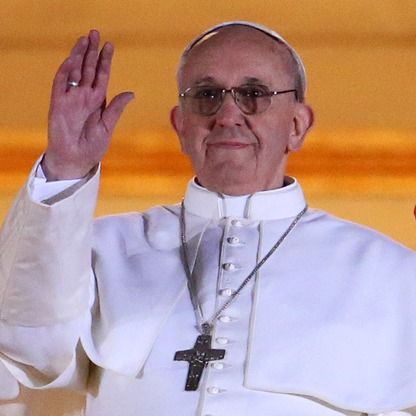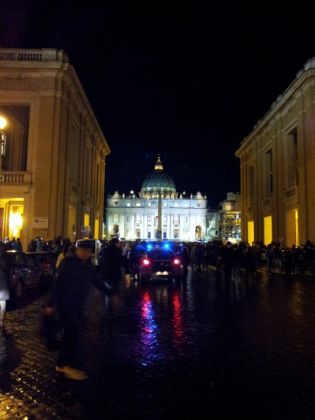It’s Pope Francis, said the tallest man in the group sheltering from the rain under Bernini’s columns to the left of St Peter’s Square. “So it must be O’Malley”, he continued with a knowledgeable air. “Who?” his neighbours asked. “The Franciscan from Boston,” he replied. Then the drapes on the central balcony went down and we were left no wiser.
A quick phone call home and our informant came back with another bit of news. “It’s a Jesuit,” he proclaimed. “Then it’s not O’Malley,” another Italian said. “So what is his name?”
Jorge Mario Bergoglio, the Jesuit from Argentina, was a well-known name to those who watched the 2005 conclave. He was the only man to get enough votes to challenge Joseph Ratzinger, after the much-loved fellow Jesuit, Cardinal Maria Martini, excluded himself from the running on grounds of ill health. Since then Cardinal Bergoglio has almost fallen out of sight.
His 13 years as archbishop of Buenos Aires (1998-2011) have been uneventful, spent living simply and quietly without the outward trappings of his high office. The name of Francis, after the saint from Assisi, fits him well. Not only is he the first pope to take the name of Francis, he is also the first Jesuit to become pope.
His early career as a Jesuit took off fast. In 1973 he was appointed as the provincial head of the order in Argentina at the relatively young age of 37. After six difficult years in office, the years of the military dictatorship, he moved on and for the next 13 years, until he emerged in 1992 as an auxiliary bishop of Buenos Aires, remarkably little is known about him. But his period as provincial was scarred in 1976 by the capture and torture of two liberal Jesuit priests by the military junta, followed by their mysterious release five months later.
The decade after his time as Jesuit provincial was filled with study in Germany, then teaching and spiritual guidance at his old seminary in Argentina. Unlike his fellow Jesuits he is not well travelled, having spent his career almost exclusively in Argentina. Nor like many others in his order – known throughout its history for the brilliance of its theologians, philosophers and scientists – he did not head down the usual academic route.
For the cardinal electors to have picked a Jesuit as pope, the first in history, is a surprise indeed. For him to have picked a Franciscan name, the first in history, is yet another. What are the next surprises that Pope Francis has in store?
Mary Wilsey

























